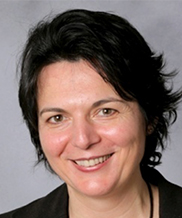Avoiding Oblivion: UNESCO PERSIST and the World’s Digital Heritage
Digital content such as documents, presentations, spreadsheets, and audio-visual media contain precious information. The use of that information is highly dependent on computing technologies and vulnerable to the rapid rate of technology obsolescence. In order to ensure that digital information can be accessed and used in the future, it is critical to consider both the storage of content files and the computational environments within which software and content can be instantiated. Ensuring that the software remains functional and usable over a long time is a challenge that the UNESCO PERSIST Programme is set up to tackle.
In this presentation Natasa will discuss the UNESCO PERSIST initiative and the principles on which it plans to build sustainable services for using legacy digital content and applications. Such services are important to support preservation activities, including selection, characterization, and dissemination of legacy content. I ll describe the economic roots of the problem and illustrate the technical feasibility for achieving the economy of scale, e.g., by leveraging cloud services. In collaboration with the wider community, UNESCO PERSIST aims to identify effective business models as they are key to sustaining relatively rare but critical use of legacy content and applications.
Never Miss An Event; Join Our Email Community
Presenter

Natasa Milic-Frayling is Professor and Chair of Data Science at the School of Computer Science, University of Nottingham. She has a long track record in computer science research and innovation, focusing on received her undergraduate degree in Applied Mathematics from University of Zagreb, Croatia and Doctorate in Applied Mathematics from Carnegie Mellon University, Pittsburgh.
Prior to joining University of Nottingham in October 2015, Natasa worked as a Principal Researcher at Microsoft Research (MSR) in Cambridge, UK. During her tenure at Microsoft Research, she was setting directions for the Integrated Systems team and covered a range of research areas, from core IR topics, to robust reputation scoring in social media and Personal Information Management across devices and platforms. Her research is featured in +80 publications and produced +20 working prototypes, including NodeXL and Project Colletta that have been used by thousands of users.
Natasa is passionate about societal impact of digital technologies and promotes a dialogue between the ICT industry, consumers, and policy makers on strategic issues. Her current focus is on digital obsolescence and privacy respecting technology designs. Following her involvement in EU projects PLANETS and SCAPE she has become a Chair of the Technology and Research Workgroup for the UNESCO PERSIST programme and leads the initiative to sustain digital computation and ensure long term access to digital heritage. Natasa is also a Founder and CEO of Intact Digital Ltd that ensures access and use of software applications and systems beyond their market life-time.
On these critical issues, Natasa collaborates with a number of academic organizations. She is a Visiting Professor at the Queen Mary University of London and the University College London and a Distinguished Visiting Scholar with MediaX at Stanford University. Recently she has been elected a member of the ACM Europe Council and joined the ACM Women Europe Executive Committee. She is on the Advisory Board for the Course in Entrepreneurship at the University of Cambridge and the Turing Gateway in Mathematics at the Isaac Newton Institute for Mathematical Sciences. She actively collaborates with researchers across disciplines and serves as advisor of e-ARK EU project and the Science of Meaningful Consent EPSRC Project.